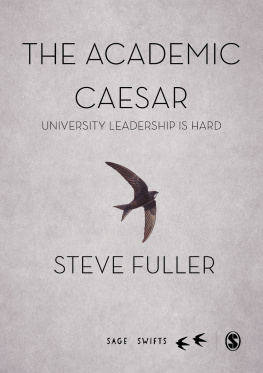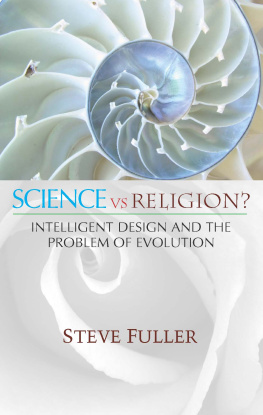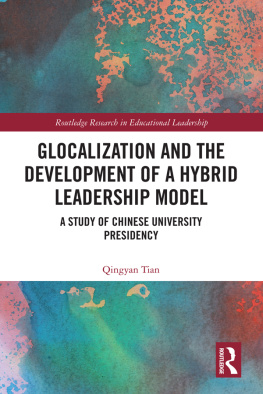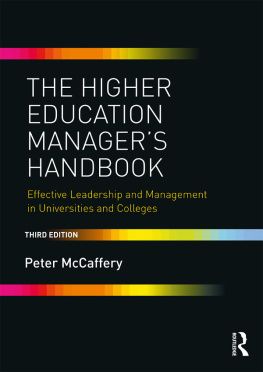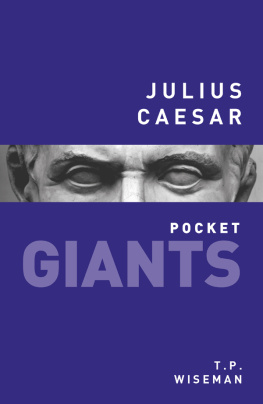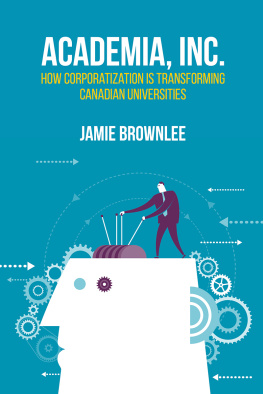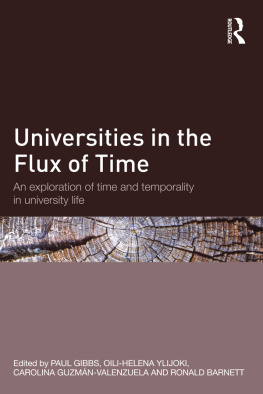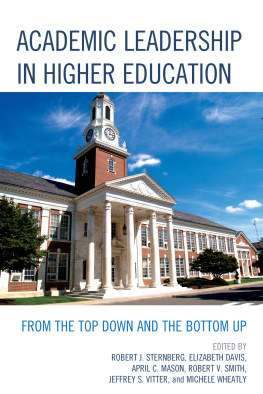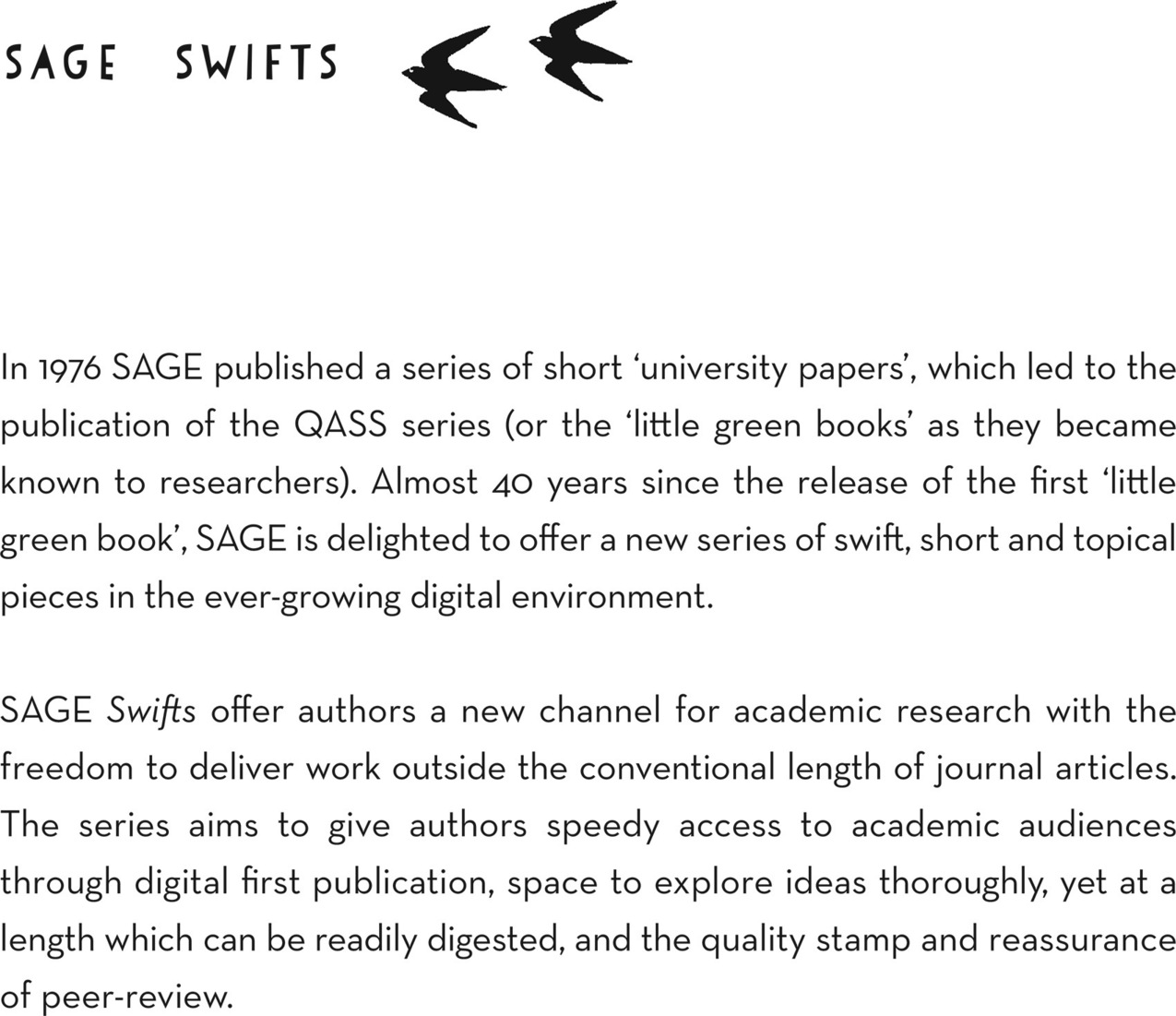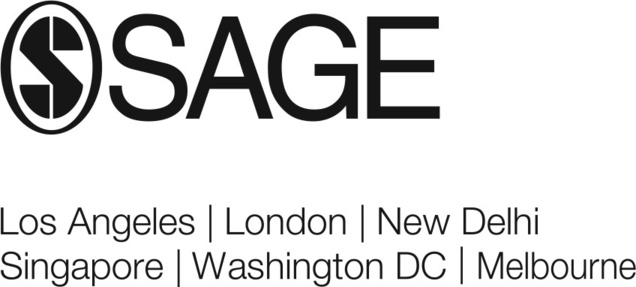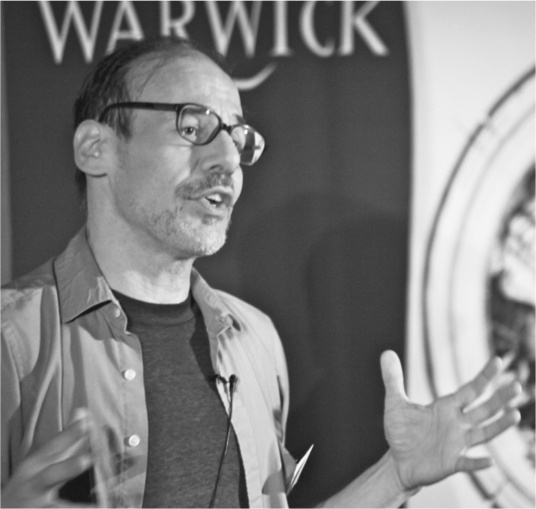Steve Fuller - The Academic Caesar: University Leadership is Hard
Here you can read online Steve Fuller - The Academic Caesar: University Leadership is Hard full text of the book (entire story) in english for free. Download pdf and epub, get meaning, cover and reviews about this ebook. year: 2016, publisher: SAGE Publications Ltd, genre: Politics. Description of the work, (preface) as well as reviews are available. Best literature library LitArk.com created for fans of good reading and offers a wide selection of genres:
Romance novel
Science fiction
Adventure
Detective
Science
History
Home and family
Prose
Art
Politics
Computer
Non-fiction
Religion
Business
Children
Humor
Choose a favorite category and find really read worthwhile books. Enjoy immersion in the world of imagination, feel the emotions of the characters or learn something new for yourself, make an fascinating discovery.
- Book:The Academic Caesar: University Leadership is Hard
- Author:
- Publisher:SAGE Publications Ltd
- Genre:
- Year:2016
- Rating:3 / 5
- Favourites:Add to favourites
- Your mark:
The Academic Caesar: University Leadership is Hard: summary, description and annotation
We offer to read an annotation, description, summary or preface (depends on what the author of the book "The Academic Caesar: University Leadership is Hard" wrote himself). If you haven't found the necessary information about the book — write in the comments, we will try to find it.
Aimed directly at those who aspire to be university leaders in these turbulent times, and written as an academic counterpart to Machiavellis The Prince,The Academic Caesar explores four themes that are central to the contemporary university: its Caesar-leaders, its economics, its disciplines, and whether academics have a future in the universities.
Drawing on a wealth of experience writing about the social epistemology of higher education, Steve Fuller makes a witty, robust and provocative contribution to the ongoing debate about where the university has come from and where it is going.
The AcademicCaesar will prove a fascinating read for those seeking new insights into current crisis in higher education as well as researchers and academics interested in the sociology of leadership.
Steve Fuller: author's other books
Who wrote The Academic Caesar: University Leadership is Hard? Find out the surname, the name of the author of the book and a list of all author's works by series.

